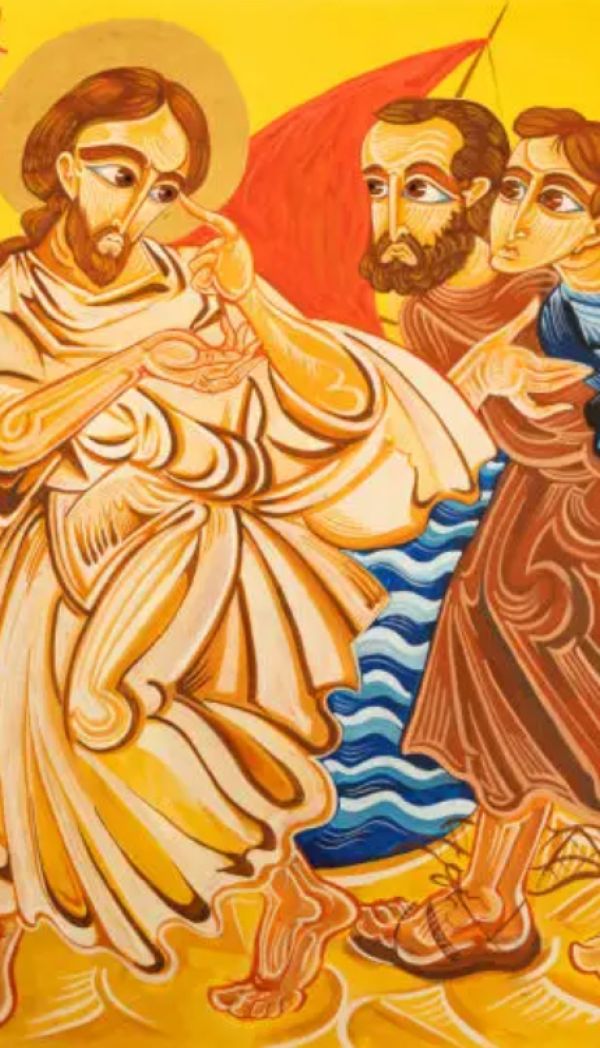Without intimate contentions
(Lk 12:39-48)
Jesus reproaches his intimates [those of the House]: it’s neither love nor freedom not to be able to understand in which direction to go, not to have a goal that transmits meaning to our pilgrimage.
Already in the communities of the first centuries was alive the idea of the end of the world and of the immediately subsequent «return» of the Risen One - to fix things, like any other Messiah. So someone didn’t commit himself anymore. Others was remaining with their noses up, to peer into the sky.
But the Coming of Christ is always imminent, and the Judgment on the things of the world has already been pronounced on the Cross.
In his Spirit who makes all events new, and in his disciples, the Lord has never moved elsewhere (nor above) [cf. Mt 28,20].
The final phase of history begins precisely from this germ of Faith not alienated, of Person not repressed, and of an alternative society; but the history to be written is the task of the Church.
The new heaven and new earth of the divinising Presence is already throbbing. In this way, He is next to us when we fight for realization and the full existence of everyone.
In no passage of the Gospels it’s written that Jesus «will return»: although not perceptible to the senses, He never went away.
He enjoys a full Life, not conditioned by space-time coordinates like ours.
He is the One Coming [Greek text, passim]: the One who incessantly makes Himself Present, and becomes a travelling companion - not only in exceptional figure.
The attention of the impressionable people already in the 80s shifted (unfortunately) to the Return instead of the «unceasing Coming» [that is, perception of his Friendship in even common things, in the Appeal of the needy; in the Call of intuitions, of the Word, of the companions of our journey; in the genius of time, and even in everyday facts].
His «Coming» is: in the goals that smile, but even and perhaps more in the obstacles to be lived, shifting our gaze - in the disappointments, wich lead us to seek a less outward joy.
Thus, according to the Lord’s desire, the good guide of the Christian community will become a servant of the lost, will not appropriate the goods of the Church, will also become vigilant in favour of others.
It’s essential that the first of the class do not let themselves be carried away by the adolescent desire to self-support and affirm themselves, with greedy for privileges and hoarding of relevant tasks.
Fidelity is an attitude required especially of those who in assemblies have a particular and precise mission of guidance: forbidden to abuse it!
The only desire from which they must feel caught up is to hasten the hour of Communion and introduce a regenerative energy, also in the roles.
But Peter is conditioned by the false traditional teaching, totally antithetical, and he cannot conceive it.
According to the Master, however, the leaders of communities are not exclusive privileged or elected, but those who are asked to do more and better.
Free people.
The only plausible objective of the particular path in the power of the Risen One is of a maternal and universal character: «to give birth to a new world, where all of us are brothers and sisters» [FT n.278].
[Wednesday 29th wk. in O.T. October 23, 2024]












